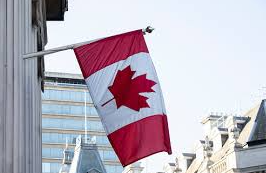
Canadian officials say they had urged clemency for the dual citizens, as diplomatic tensions with Beijing continue.
China has carried out the execution of four Canadians convicted of drug-related offences, Canadian authorities confirmed earlier this year.
Foreign Minister Mélanie Joly stated that all four individuals were dual citizens, but their identities have not been disclosed. She emphasised that Canada had been actively seeking clemency for them for months.
The Chinese embassy in Canada responded by urging Ottawa to refrain from “irresponsible comments” and insisted that Beijing had acted in strict accordance with its legal framework. China’s foreign ministry defended the executions, stating that there was “clear and sufficient evidence” supporting the convictions. The embassy further asserted that the rights of the individuals had been fully respected.
China does not recognise dual nationality and maintains a harsh stance on drug-related crimes. While capital punishment is common for serious offences in the country, executions of foreign nationals remain rare.
Joly disclosed that former Prime Minister Justin Trudeau had also been involved in diplomatic efforts to prevent the executions. In a statement, Canadian government spokesperson Charlotte MacLeod reiterated the nation’s firm opposition to the death penalty, stating: “We have persistently called for clemency at the highest levels and continue to oppose the use of capital punishment in all circumstances.”
China imposes the death sentence for offences including drug trafficking, corruption, and espionage. Although the exact number of executions remains a state secret, human rights organisations estimate that China carries out more executions than any other country.
Amnesty International Canada’s Ketty Nivyabandi described the executions as “appalling and inhumane,” expressing sympathy for the families affected. She added: “This tragedy should serve as a stark warning for Canada. We stand in solidarity with the victims’ loved ones and remain deeply concerned for Canadians currently on death row in China.”
Robert Lloyd Schellenberg, a Canadian sentenced to death in 2019 for drug smuggling, was not among those executed, but his case remains a significant point of contention in Canada-China relations.
Joly reaffirmed Canada’s commitment to advocating for other citizens facing the death penalty in China, stating: “We will continue to strongly condemn these actions and push for leniency in similar cases.”
Diplomatic relations between the two nations have remained tense since 2018, following Canada’s arrest of Chinese telecom executive Meng Wanzhou at the request of the United States. China responded by detaining two Canadians, both of whom were later released.
More recently, Canada has accused China of interfering in its federal elections, claims that Beijing has denied as “baseless.” Additionally, economic tensions have escalated, with both countries imposing retaliatory trade measures.

















